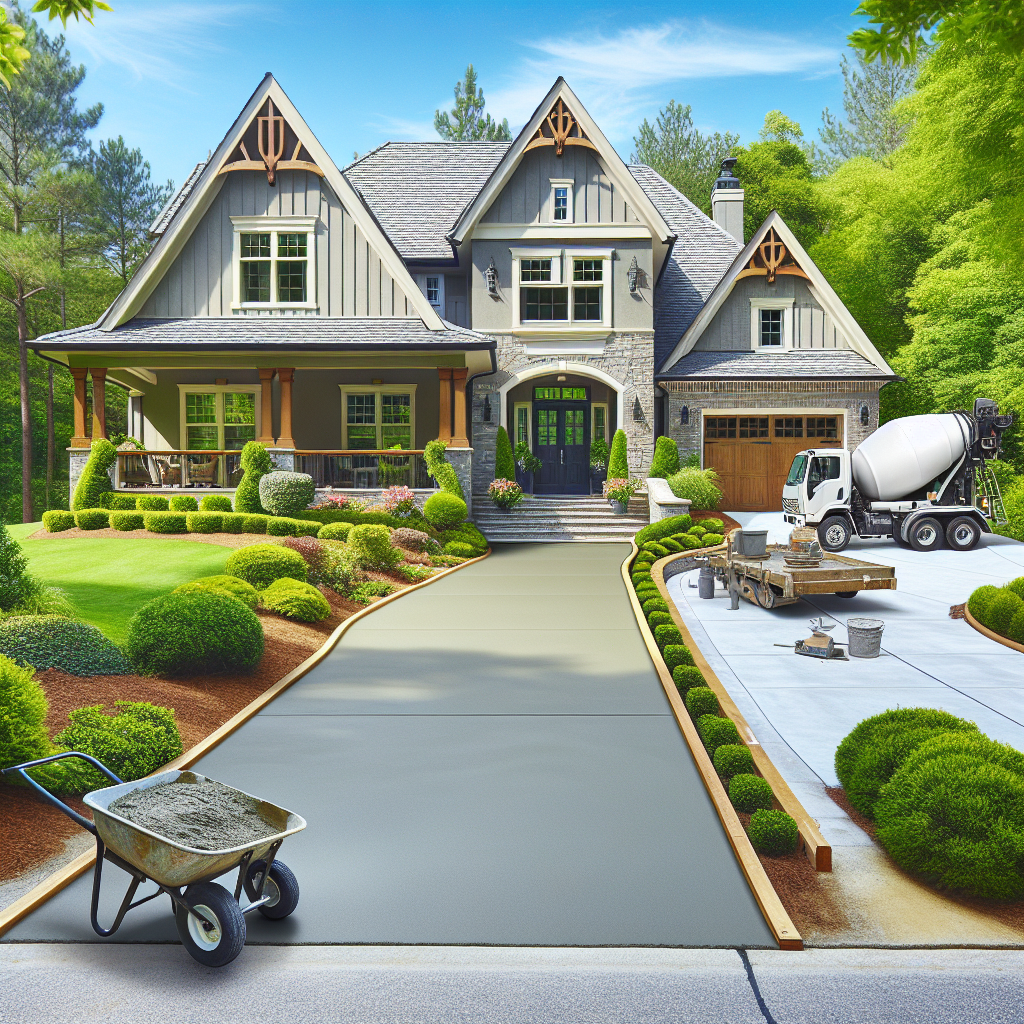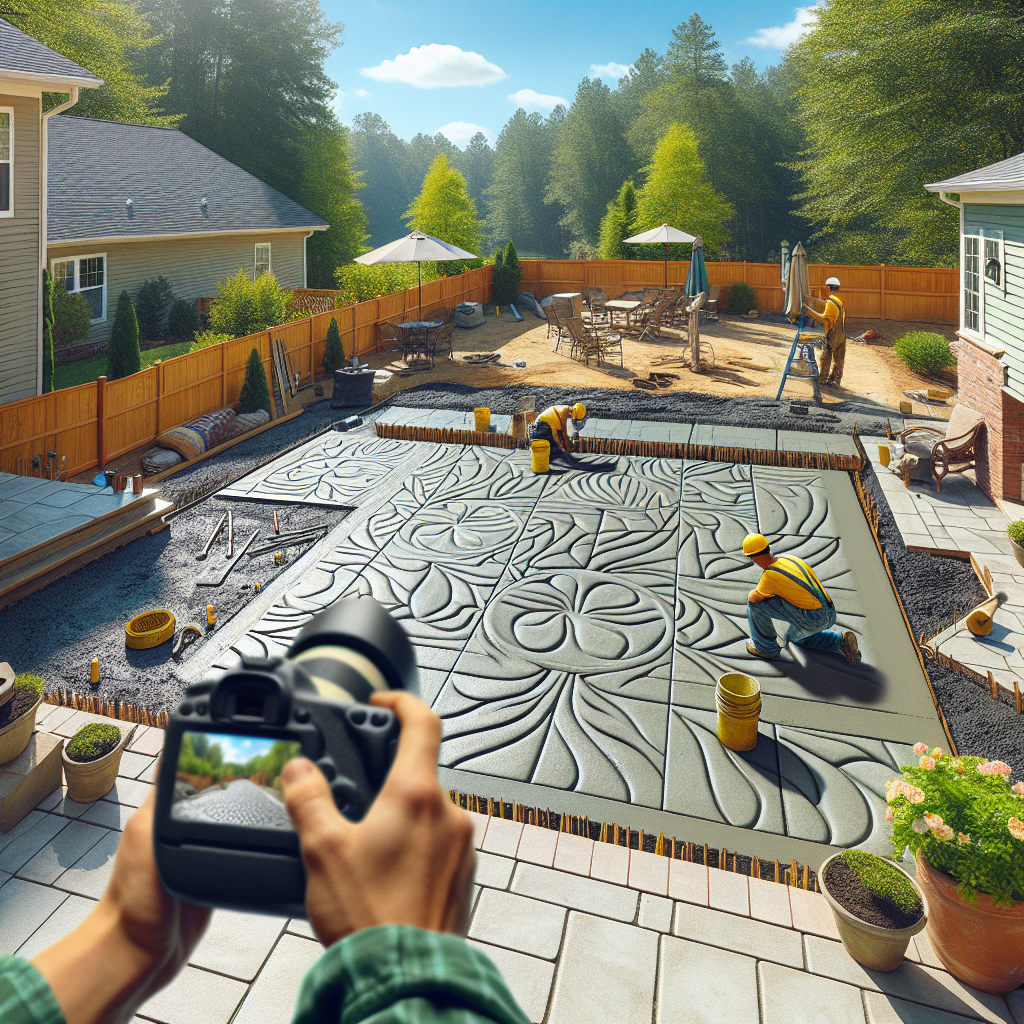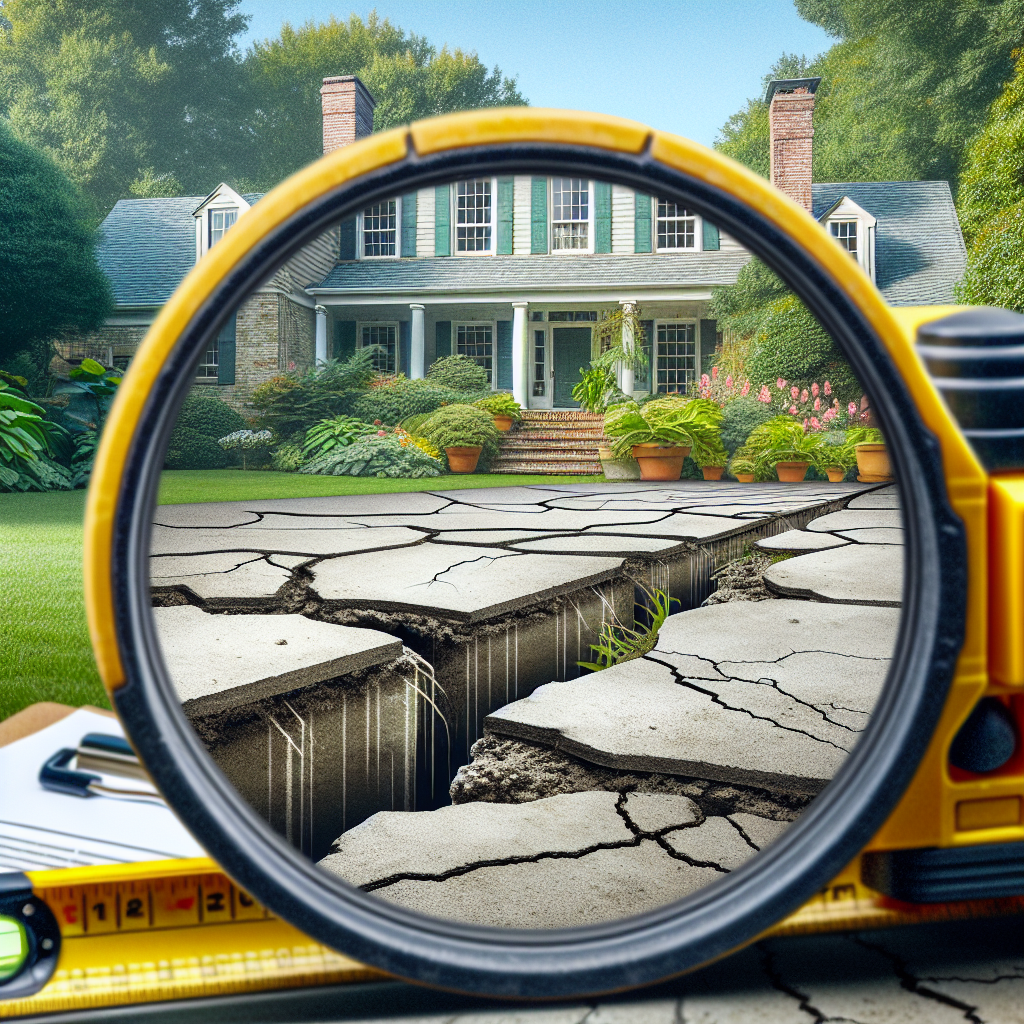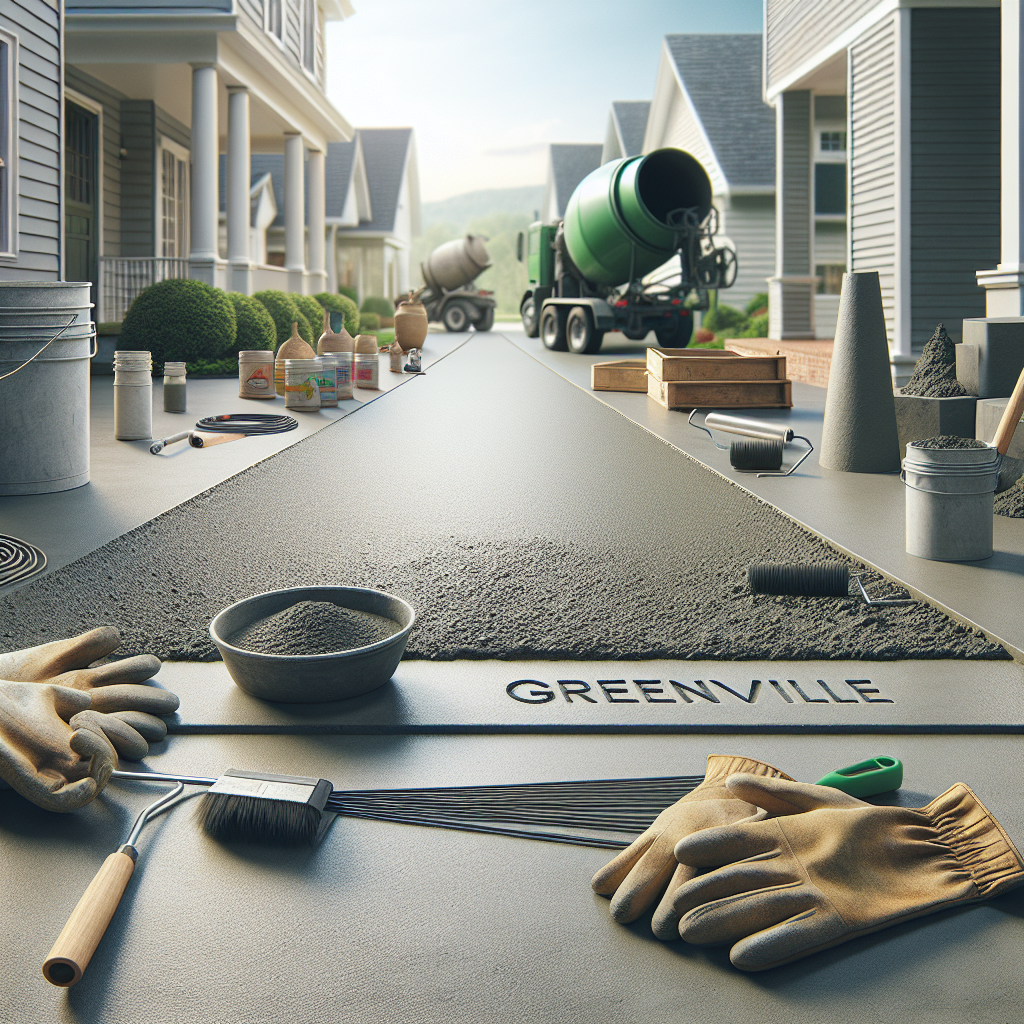Understanding the Basics of Concrete Repair in Greenville, SC
Welcome to our latest blog post! If you’re a homeowner in Greenville, SC, you might have noticed that the concrete around your home, be it your driveway, walkway, or patio, can suffer from wear and tear over time. Understanding the basics of concrete repair can not only save you money but also keep your property looking its best. Today, we dive deep into the nitty-gritty of concrete repair, tailored specifically for the Greenville climate and environment.
Step-by-Step Guide to DIY Concrete Crack Repair for Greenville Homes
Got a crack in your concrete? Fear not! Before you call in the professionals, there might be some repairs you can handle on your own. In this section, we’ll walk you through a simple, do-it-yourself guide to repairing small cracks in concrete. Whether it’s your driveway or your patio that needs a quick fix, we’ve got the tips and tricks to help you get it done right.
Professional Concrete Repair Services in Greenville: When to Call the Experts
While DIY repairs are great for small issues, larger problems might require a bit more expertise. Knowing when to call in professional concrete repair services in Greenville can save you both time and money in the long run. In this part of our guide, we’ll help you identify signs that indicate it’s time to hire the experts. We’ll also introduce you to local Greenville Concrete Company services that you can rely on for high-quality, durable repairs.
We’re excited to guide you through the ins and outs of concrete repair. Whether you’re tackling the project yourself or seeking professional help, our aim is to provide you with all the information you need to make informed decisions about maintaining and enhancing the value of your property. Let’s get started!
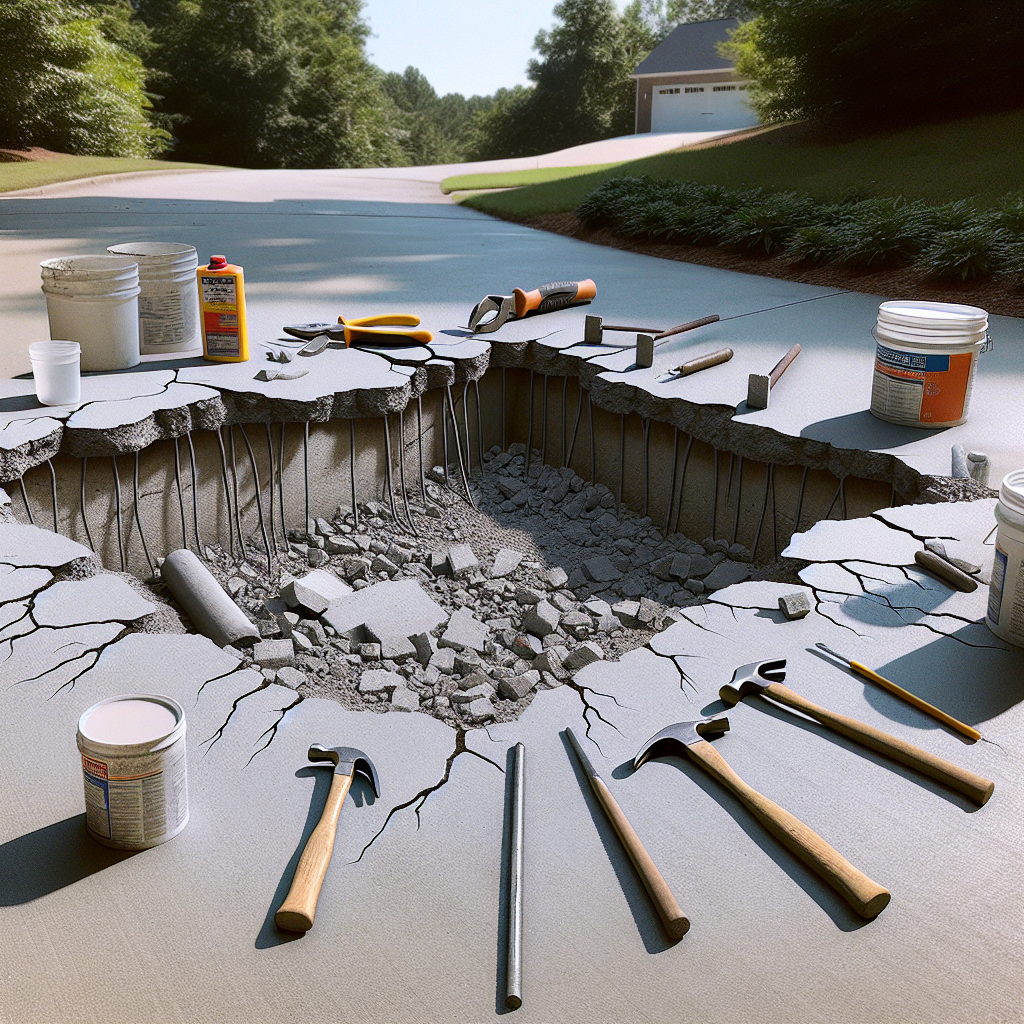
If you need help with your concrete project, reach out to Greenville Concrete Company for a free quote!
Understanding the Basics of Concrete Repair in Greenville, SC
Welcome to Greenville, SC! Whether you’re a long-time resident or a newcomer, one thing you might notice is how our community values sturdy, well-maintained infrastructures. Key to this is the concrete that makes up our driveways, sidewalks, and patios. Like anything else, concrete can wear and degrade over time, making understanding the basics of concrete repair essential for maintaining your property’s beauty and safety.
What Causes Concrete Damage?
Before diving into repairs, let’s talk about what causes damage to concrete. Knowing these can help you prevent future issues:
- Weather Conditions: Greenville experiences a range of weather that can lead to concrete deterioration, including freezing winter temperatures and hot, humid summers.
- Water Damage: Water is one of concrete’s biggest enemies. If water seeps into concrete and freezes, it expands, causing what we call freeze-thaw damage.
- Chemical Exposure: Salts and deicers, commonly used during snowy conditions, can also eat away at concrete surfaces over time.
- Physical Stress: Heavy loads and frequent traffic can cause concrete to crack and chip.
- Improper Installation: Sometimes, the damage stems from the very beginning due to poor concrete mix or improper installation techniques.
Signs That Your Concrete Needs Repair
Here are a few telltale signs to watch out for that indicate it’s time to consider repairs:
- Cracks: Small or large, these are the most apparent signs. They can allow water to penetrate deeper into the concrete, leading to more significant issues.
- Potholes: Often found in driveways, potholes are not only unsightly but can also be dangerous.
- Discoloration: Changes in color can indicate that the concrete is aging or reacting to chemicals or UV light.
- Pooling Water: If water gathers on your concrete surfaces instead of draining off, it’s a sign of uneven or damaged areas.
Understanding Different Repair Options
Not all concrete problems require the same fix, and sometimes what works for a sidewalk might not be suitable for a garage floor. Here are the most common types of concrete repairs:
Sealing Cracks
One of the simplest forms of concrete repair involves sealing cracks. This is often done using a flexible sealant, which accommodates the concrete’s expansion and contraction and prevents water from seeping in.
Concrete Resurfacing
When the surface of the concrete is worn but the structural integrity is still sound, resurfacing could be a great option. This involves cleaning and repairing the existing surface and then applying a new top layer.
Patching
More visible and deeper damage like potholes or larger chipped areas might need patching. This typically involves cleaning out the damaged areas, preparing them, and filling them with a new concrete mix that bonds with the old material.
Slabjacking
If your concrete slabs are sinking or uneven, slabjacking (or mudjacking) could be the solution. This process involves pumping a grout mixture beneath the slab to lift it back into place.
Reinforcement and Rebuilding
In cases where damage is extensive, reinforcing or even rebuilding might be necessary. This is particularly common in structures that bear loads, like bridges or building foundations.
Preventive Measures to Extend Concrete Life
Maintaining your concrete and ensuring it lasts as long as possible involves regular maintenance and some preventive measures:
- Regular Cleaning: Keeping your concrete clean helps you spot potential problems before they escalate.
- Sealing: Applying a high-quality sealant can prevent water and deicing salts from penetrating the surface.
- Avoid Chemicals: Minimize the use of harsh chemicals and salts on your concrete surfaces.
- Proper Installation: If you’re laying new concrete, ensure it’s done correctly—poor installation is a direct path to future problems.
Local Expertise Matters
If you’re unsure about the type of repair your concrete needs, consulting a local expert in Greenville can help. They understand the local climate and environmental stresses your concrete faces and can offer tailored advice and solutions.
Whether you’re dealing with a minor crack or a major structural issue, understanding the basics of concrete repair can help you keep your property safe and looking its best. Remember, when in doubt, it’s always a good idea to call in the professionals – they’ll know exactly what to do!
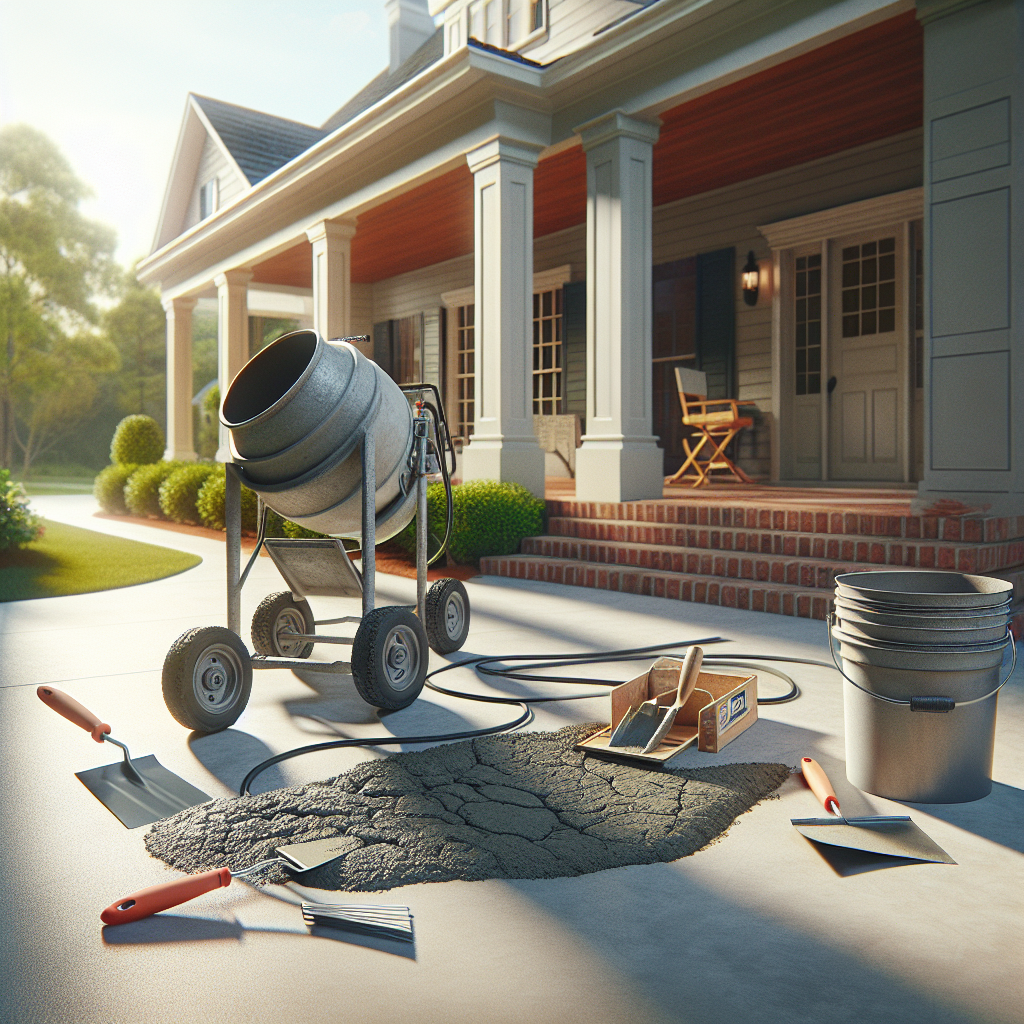
Step-by-Step Guide to DIY Concrete Crack Repair for Greenville Homes
Hey there, Greenville homeowner! Spotting a crack in your concrete can be a bit unsettling, but worry not! You’re about to learn how you can tackle these pesky cracks yourself. Before you consider calling in the pros, let’s explore a simple, yet effective DIY approach to repair minor concrete cracks and keep your home looking its best. Whether it’s your driveway, sidewalk, or patio showing signs of wear, we’ve got you covered!
What You Will Need
First off, let’s make sure you have everything you’ll need for this DIY project. Here’s a quick checklist:
- Concrete crack filler or repair compound – Choose a suitable product based on the width and depth of the crack.
- Caulking gun (if you’re using a tube-based filler)
- Chisel and hammer – For cleaning out the crack.
- Wire brush
- Concrete cleaner – To ensure proper adhesion of the filler.
- Putty knife or similar tool for smoothing.
- Gloves and safety glasses – Safety first!
Step 1: Cleaning the Crack
Before you start filling, it’s crucial to clean the crack thoroughly for the repair material to adhere correctly. Use your chisel and hammer to carefully remove any loose concrete and debris. Next, take your wire brush and give the crack a good scrub. Finish off by applying a concrete cleaner to remove dust, oils, and any contaminants. Allow the area to dry completely before moving to the next step.
Step 2: Preparing the Filler
Depending on the product you’ve chosen, preparation might vary. Read the manufacturer’s instructions carefully. If you’re using a tube-based filler, load it into your caulking gun. For mixable compounds, prepare the mixture as directed—generally aiming for a consistent, lump-free texture.
Step 3: Applying the Filler
Now, it’s time to fill that crack! Start from one end and slowly work your way to the other. If you’re using a caulking gun, maintain steady pressure to ensure the filler is evenly distributed throughout the crack. For putty-like compounds, use your putty knife to press the material into the crack, filling it completely.
Step 4: Smoothing the Surface
Once the crack is filled, use your putty knife to smooth out the surface. You want to make it as level with the surrounding concrete as possible. This not only improves the look but also prevents any tripping hazards.
Step 5: Curing
Allow the filler to cure based on the time recommended by the manufacturer. This can vary from a few hours to a full day. During this time, keep the repair undisturbed and avoid any water exposure if possible.
Step 6: Sealing (Optional)
For an extra layer of protection and a more uniform appearance, consider sealing your entire concrete surface once the repair is cured. This step is particularly beneficial for driveways or patios, providing additional resistance against weather and wear.
And there you go! You’ve just repaired a concrete crack all by yourself. By tackling this project, not only have you saved money, but you’ve also taken an important step in maintaining your home’s integrity and value. Remember, regular checks and timely repairs can significantly extend the life of your concrete surfaces. Happy repairing, Greenville!
Professional Concrete Repair Services in Greenville: When to Call the Experts
Hey there, Greenville homeowners! We know how much pride you take in keeping your home looking its best. Sometimes, despite our best efforts, concrete around our homes – be it driveways, walkways, or patios – can begin to show signs of wear and tear. While there are a handful of DIY fixes out there, there are certain situations where calling in the professionals is not just advisable, but necessary. Let’s explore some clear indicators that it’s time to pick up the phone and call the experts in concrete repair here in Greenville, SC.
1. Significant Cracking or Structural Damage
First things first, let’s talk about cracks. We’re not just referring to small, hairline fractures here – these can often be handled with DIY solutions. We’re talking about significant, wide cracks that could signify deeper structural issues. These types of cracks can compromise the integrity of the concrete and may lead to more severe problems if not addressed promptly by professionals.
2. Sinking or Uneven Concrete
If you’ve noticed that your concrete slabs are uneven or that parts of your driveway are sinking, you might be dealing with something that goes beyond surface-level issues. This can be caused by a variety of factors, such as soil erosion underneath the concrete or improper compaction at the time of installation. Professional concrete repair services use techniques like slab jacking or mudjacking, which are effective methods for leveling out concrete and ensuring it is supported properly from beneath.
3. Extensive Staining and Discoloration
While discolored concrete might not seem like a case for urgent repairs, extensive staining can often indicate problems that are more than skin-deep, such as chemical damage or significant water infiltration. Professional concrete specialists can evaluate the extent of the damage and suggest solutions that might include sealing or a complete resurface, depending on the severity.
4. Recurring Problems
If you’ve tried patching up areas of your concrete multiple times but the same issues keep reappearing, it’s a strong sign that there are underlying issues that DIY fixes can’t resolve. Repeated cracking or crumbling can be symptomatic of more serious problems that only professional assessment and repair can effectively address.
5. When Selling Your Home
Thinking of selling your home? Well-maintained concrete can significantly boost curb appeal and increase your property’s value. If you have damaged concrete, hiring professionals to repair it can be a smart investment, making your home more appealing to potential buyers and possibly speeding up the sale process.
6. Safety Concerns
Last but certainly not least, safety is paramount. Damaged concrete can pose trip hazards, particularly for children and the elderly. If your walkways, driveways, or patios are damaged to the point that they could cause accidents, it’s time to call in the experts. Ensuring the safety of your family and guests is always worth the investment in professional repair services.
Remember, while DIY concrete repair can be a fun challenge for minor issues, there are times when only a professional touch will suffice. In Greenville, SC, where the weather can further complicate concrete issues, securing expert services not only resolves current problems but also helps prevent future damage. So next time you’re unsure about the severity of your concrete issues, consider these points and decide if it’s time to call in the trusted professionals. Keeping your Greenville home safe and beautiful is always a worthwhile endeavor!
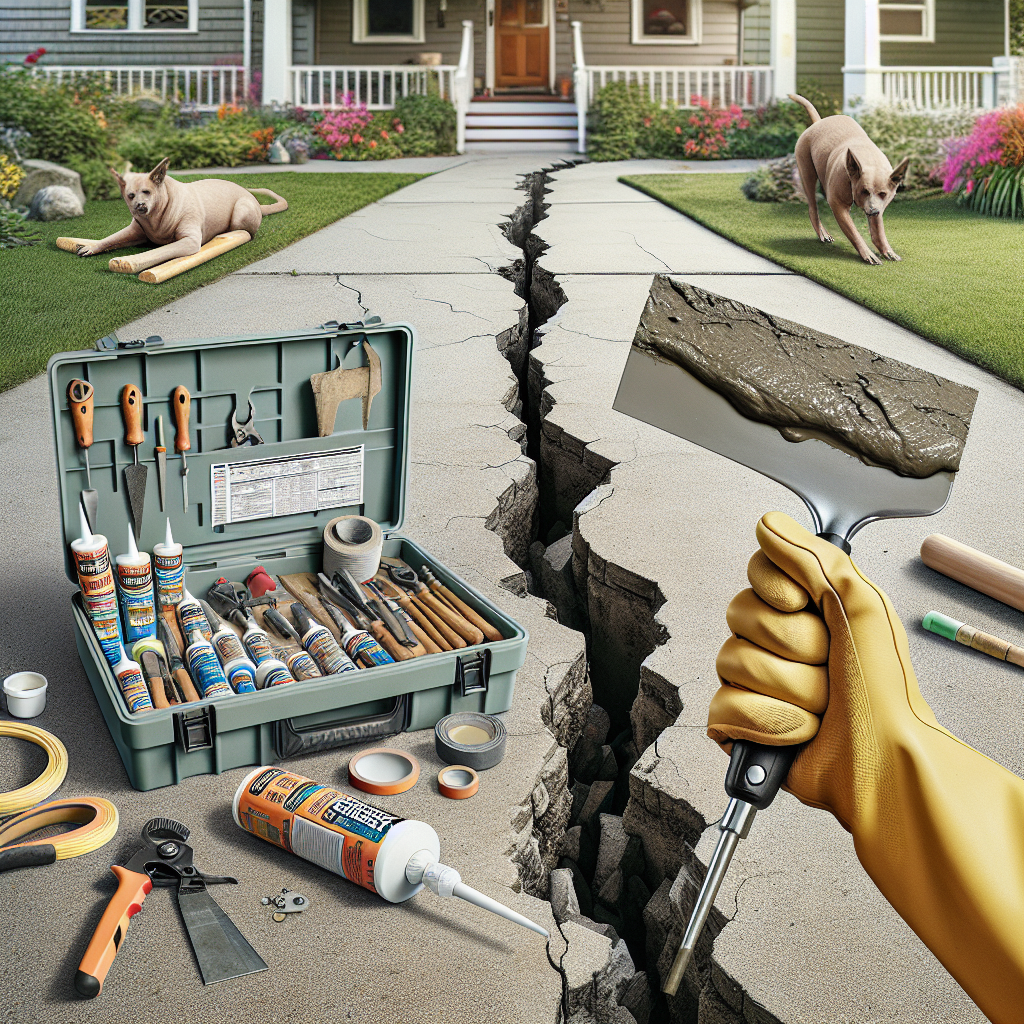
Frequently Asked Questions About Concrete Repair in Greenville, SC
What are the common signs that my concrete needs repair?
Common signs include cracks, uneven surfaces, water pooling, discoloration, and crumbling. If you notice any of these, it may be time to consider repairs to prevent further damage and ensure safety.
Can I repair minor concrete cracks on my own?
Yes, minor cracks can often be repaired DIY using concrete filler or a concrete repair kit. These products are available at most hardware stores and come with step-by-step instructions.
What causes concrete to crack?
Concrete can crack due to several reasons including thermal expansion and contraction, excessive load, improper curing or installation, and environmental factors. Understanding the underlying cause is key to effective repair and prevention.
How long does a typical concrete repair last?
The longevity of a concrete repair can vary based on the materials used, the quality of the repair, and environmental conditions. Generally, a professional repair should last many years if maintained properly.
When should I opt for professional concrete repair services?
If the damage is extensive, affects structural integrity, or you’re unsure about the proper repair method, it’s best to contact a professional. They have the expertise and equipment to effectively handle complex repairs.
Are there eco-friendly options for concrete repair?
Yes, there are several eco-friendly materials and techniques available for concrete repair that minimize environmental impact, including the use of recycled materials and low-VOC (volatile organic compounds) products.
What maintenance tips can help prolong the life of my concrete?
- Regular cleaning and removing stains promptly.
- Sealing the concrete periodically to prevent moisture penetration.
- Avoiding the use of deicing chemicals which can deteriorate the concrete surface.
- Addressing minor repairs early to prevent them from becoming major issues.
Can decorative concrete also be repaired?
Yes, decorative concrete can be repaired, often with techniques that ensure the repairs blend seamlessly with the original design. Professionals in this niche can provide solutions that maintain the aesthetics while ensuring functionality.
What is the best season for concrete repair in Greenville, SC?
Ideally, spring and fall are the best seasons for concrete repair in Greenville due to moderate temperatures and minimal rainfall, which are conducive for curing and setting concrete.
How do I prepare my concrete surface for repair?
Preparing your concrete surface involves cleaning the area thoroughly, removing any loose material, and ensuring the surface is dry and free of oils or debris. This preparation is crucial for ensuring the repair materials adhere properly.
What should I look for in a concrete repair contractor in Greenville?
Look for a contractor with good reviews, proper licensing, experience, and one who offers a warranty on their work. These factors help ensure quality and reliability.
Conclusion
If you’re based in Greenville, SC, and noticing some wear and tear on your concrete surfaces, remember, timely intervention can save you both money and hassle in the long run. Whether it’s a simple crack that’s just appeared in your driveway or more significant damage that requires expert attention, knowing the basics and when to call in the professionals is essential.
For those of you considering a DIY approach, remember to assess the extent of the damage carefully before proceeding. Sometimes, what appears as a minor crack might indicate deeper structural issues that would benefit from professional evaluation. Moreover, hiring experts like those at Greenville Concrete Company, ensures that you receive not only top-notch service but also guidance on maintaining your concrete to prevent future damage.
Greenville Concrete Company offers comprehensive repair services tailored to your specific needs, and they use quality materials designed to withstand the test of time and weather. So, if you’re unsure about the best course of action, or if you just want to ensure the job is done right, don’t hesitate to reach out.
For more information, expert advice, or to get a free quote, be sure to contact Greenville Concrete Company. Professional help is just a call or click away, and with their expertise, you can rest assured that your concrete surfaces will be looking great and functioning perfectly for years to come!

